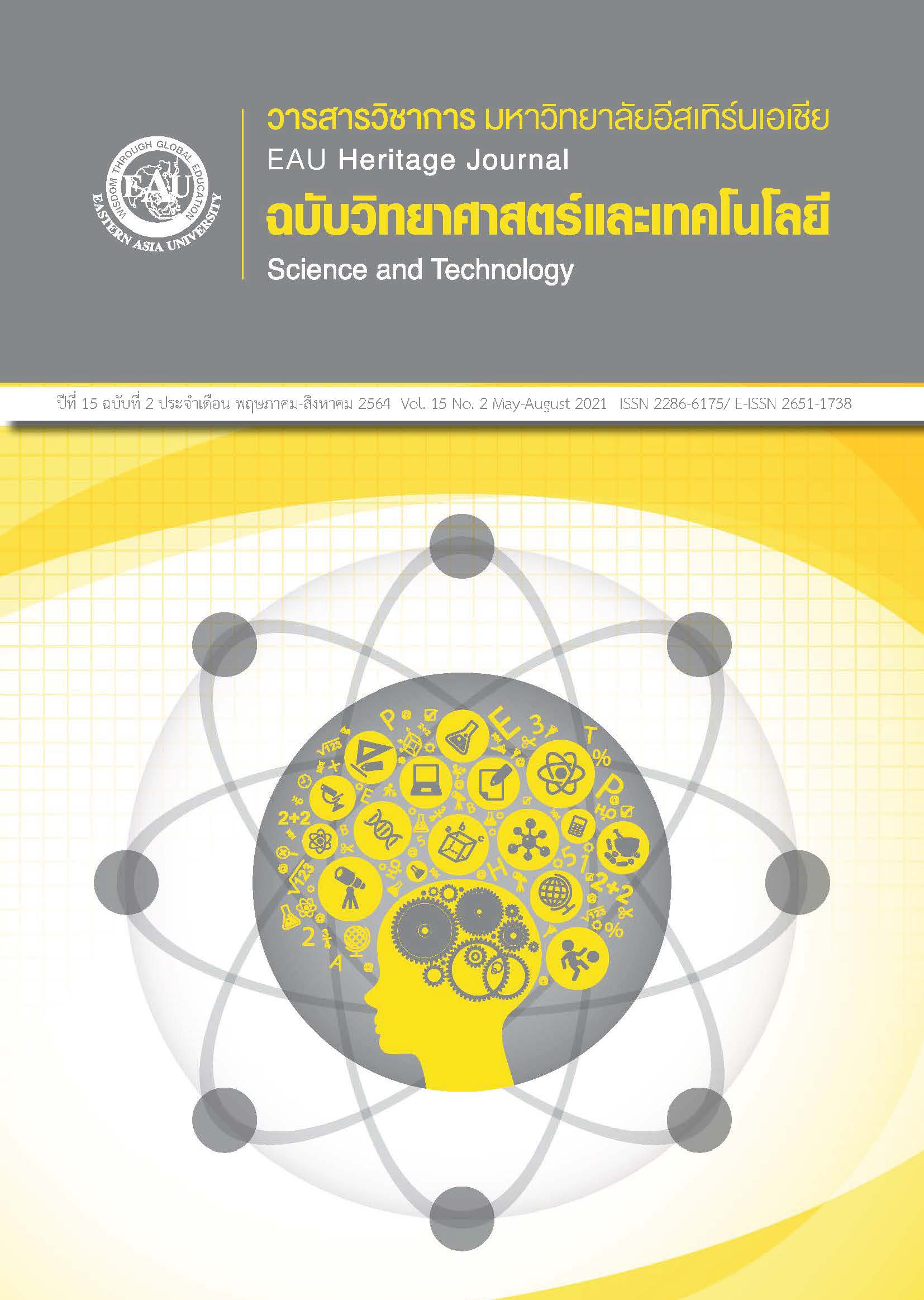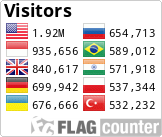การจัดการซากแผงเซลล์แสงอาทิตย์และซากผลิตภัณฑ์อิเล็กทรอนิกส์อย่างยั่งยืน
คำสำคัญ:
ซากแผงเซลล์แสงอาทิตย์ ซากผลิตภัณฑ์อิเล็กทรอนิกส์, วิธีการจัดการซากแผงเซลล์แสงอาทิตย์, วิธีการจัดการ ซากผลิตภัณฑ์อิเล็กทรอนิกส์บทคัดย่อ
บทความนี้มีวัตถุประสงค์เพื่อนำเสนอแนวทางการจัดการซากแผงเซลล์แสงอาทิตย์และซากผลิตภัณฑ์อิเล็กทรอนิกส์อย่างยั่งยืนโดยการนำเทคโนโลยีการแยกด้วยกระบวนการทางเคมีมาเป็นส่วนหนึ่งในการบริหารระบบการจัดการซากแผงเซลล์แสงอาทิตย์และซากผลิตภัณฑ์อิเล็กทรอนิกส์ที่เกิดจากการนำแผงเซลล์แสงอาทิตย์และอุปกรณ์หลักมาใช้ในระบบการผลิตไฟฟ้าด้วยเซลล์แสงอาทิตย์ ซึ่งจากการคาดการณ์ขยะแผงเซลล์แสงอาทิตย์ ขยะของเสียอิเล็กทรอนิกส์ ตามแผนพัฒนาพลังงานทดแทนและพลังงานทางเลือกที่ส่งเสริมให้มีการผลิตกระแสไฟฟ้าด้วยพลังงานแสงอาทิตย์ที่ติดตั้งบนพื้นดิน หรือโซลาร์ฟาร์ม ติดตั้งบนหลังคาสำหรับอาคารประเภทบ้านอยู่อาศัย ประเภทธุรกิจ และโรงงาน ซึ่งเป็นความท้าทายด้านปริมาณขยะที่เกิดจากระบบผลิตไฟฟ้าด้วยแผงเซลล์แสงอาทิตย์ เมื่อชำรุดหรือหมดสภาพการใช้งานจะกลายเป็นขยะอิเล็กทรอนิกส์ จึงต้องมีการนำเสนอแนวคิดกระบวนการ วิธีการจัดการ การใช้เทคโนโลยีการแยกด้วยกระบวนการทางเคมีจะสามารถนำโลหะหนักไปใช้เป็นวัตถุดิบในการผลิตแผงเซลล์แสงอาทิตย์ เศษกระจกและส่วนที่เป็นเซลล์สามารถนำไปเป็นวัตถุดิบในอุตสาหกรรมอื่นได้ นอกจากนี้การกำจัดซากจากแผงเซลล์แสงอาทิตย์โดยคำนึงถึงกฎหมายเกี่ยวกับขยะอิเล็กทรอนิกส์ แนวทางป้องกันและวิธีการจัดการซากแผงเซลล์แสงอาทิตย์ในประเทศไทย
เอกสารอ้างอิง
Better World Solutions. (2016). Solar panels can be recycled. Retrieved from https://www.betterworldsolutions.eu/solar-panels-can-be-recycled/
CES Solar Cells Testing Center (CSSC). (2021). Photovoltaic application course for system design engineers King Mongkut's University. Retrieved From: http://www.cssckmutt.in.th/cssc/. (in Thai)
Chandla-or, P. (2018). Legal measures for solar panel waste management. Graduate Law Journal, 11(3), 762-777. (in Thai).
Champar-ngam, N. (2018). The renewal of soil contaminated industrial hazard wastes. EAU Heritage Journal Science and Technology, 12(2), 97-111. (in Thai)
Chiang Mai News. (2019). Computer engineers join the ReCute team to submit ideas for the matching order system, win 3 prizes from 3 fields. Retrieved from https://www.chiangmainews.co.th/page/archives/1114101/. (in Thai)
Department of Alternative Energy Development and Efficiency. (2017). Project to study the potential area suitable for developing solar power generation systems in Thailand. Bangkok: Department of Alternative Energy Development and Efficiency (in Thai).
Department of Alternative Energy Development and Efficiency. (2017). Guidelines on environmental impact prevention and disposal of wastes from solar power generation projects for Thailand. Bangkok: Ministry of energy. (in Thai).
Department of Alternative Energy Development and Efficiency. (2018). Report on the status of electricity generating with solar cells in Thailand. Ministry of energy. Bangkok: Department of Alternative Energy Development and Efficiency. (in Thai).
Department of Alternative Energy Development and Efficiency. (2018). Alternative Energy Development Plan: AEDP 2018. Bangkok: Ministry of Energy. (in Thai).
Division of Solar Energy Development (DEDE). (2018). Study report of the spatial potential study project in the management of solar panel waste in Thailand. Department of Alternative Energy Development and Efficiency (Research report). Bangkok: Division of Solar Energy Development. (in Thai)
Electricity Generating Authority of Thailand. (2021). Solar farm. Retrieved From https://www.egat.co.th/egattoday/index.php?option=com_k2&view=item&id=13733:20210502-egatsp&Itemid=129. (in Thai)
Hazardous Substance Management Division, Department of Industrial Works. (2014). Recommendations for considering hazardous materials in accordance with List 5.6. Retrieved from http://eis.diw.go.th/haz/pdf/haz5.6.pdf. (in Thai).
International Finance Corporation (IFC). (2015). Utility-scale solar ohotovoltaic power plants: A project developer’s guide. DC, USA: Environmental, Social and Governance Department.
International Renewable Energy Agency. (2016). End-of-life management solar photovoltaics panel. Retrieved from https://www.irena.org/-/media/Files/IRENA/Agency/Publication/2016/IRENA_IEAPVPS_End-of-Life_Solar_PV_Panels_2016.pdf
Kang, K., Kang, H., Ilankoon, I., & Chong, C.Y. (2020). Electronic waste collection systems using Internet of Things (IoT): Household electronic waste management in Malaysia. Journal of Cleaner Production, 252, 119801. https://doi.org/10.1016/j.jclepro.2019.119801.
Kritsaya, M., & Kritsana, F. (2018). The critical factors to success of startup business in Thailand, Payap University Journal, 28(2), 143-158. (in Thai).
Kumkoa, S. (2016). Solar cell usage data and forecast of domestic solar cell waste. Electronic waste management master plan project (Solar Cells) (Research report). Nakhon Ratchasima: Suranaree University of Technology. (in Thai).
Leejhakbhai, T. (2007). Portable power plant battery. Material Evolution, 2007, 16-21. (in Thai).
Public Information Center (PIC). (2007). Industrial environment law 2007. Retrieved from http://www2.diw.go.th/PIC/law_01.html. (in Thai)
Puangprasert, S., & Prueksasit, T. (2019). Health risk assessment of airborne Cd, Cu, Ni and Pb for electronic waste dismantling workers in Buriram Province, Thailand. Journal of Environmental Management, 252, 109601. https://doi.org/10.1016/j.jenvman.2019.109601
Rachdawong, P., Ratanathammaphan, S., Banjerdpongchai, D., Boonpramote, T., & Sampattavanija, S. (2016). Management of expired solar PV panels (Research report). Bangkok: Office for Research and Development, Chulalongkorn University. (in Thai).
Tao, J., & Yu, S. (2015). Review on feasible recycling pathways and technologies of solar photovoltaic modules. Solar Energy Materials and Solar Cells, 141, 108-124. https://doi.org/10.1016/j.solmat.2015.05.005.
Tomioka, O. (2016). Japanese companies work on ways to recycle a mountain of solar panels. Retrieved from https://asia.nikkei.com/Business/Biotechnology/Japanese-companies-work-on-ways-to-recycle-a-mountain-of-solar-panels.
Weckend, S., Wade, A., & Heath, G. A. (2016). End of life management: Solar photovoltaic panels (Research report). Golden, CO, United States: National Renewable Energy Lab. (NREL). https://doi.org/10.2172/1561525
Xu, Y., Li, J., Tan, Q., Peters, A. L., & Yang, C. (2018). Global status of recycling waste solar panels: A review. Waste Management (New York, N.Y.), 75, 450–458. https://doi.org/10.1016/j.wasman.2018.01.036







